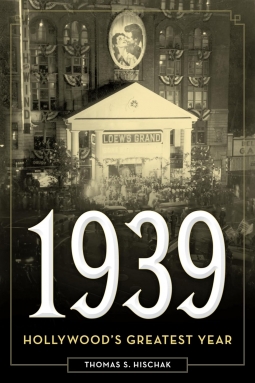"Technicolor - conceived at Boston Tech and born in a rail way car in 1917, attained its majority, properly enough, 28 years later when Dr. Herbert Thomas Kalmus, president and founder, received the 1938 Progress Award from the Society of Motion Picture Engineers at its annual convention."
- from Hollywood:

"The story of Technicolor begins in 1915 when Dr. Kalmus and his associates became interested in a color process. Dr. Kalmus' task was to find a suitable name, and, a Boston Tech man himself, he combined "Technique," the engineering school's class annual, and Color and so was born Technicolor."
Click here to read a about a particularly persuasive and highly effective W.W. II training film...
Perhaps one of the first magazine articles about the beautiful actress Martha Vickers (1925 – 1971) who is best remembered by fans for her performance as the fabulously slutty "Carmen Sternwood" in the 1946 film The Big Sleep.
This article tells the tale of her early days in 1940s Los Angeles and her work as a photographer's model, which turned more than a few of the crowned heads of Hollywood.
Those sly dogs at Script Magazine! They printed the smiling mug of the twenty-five-year-old Angela Lansbury (1925 - 2022) on the cover of their rag, briefly praising her for being the youngest performer to have ever been nominated for an Academy Award (she soon won the 1944 Best Supporting Actress statue for Gaslight), and ran a "profile" of the lass on a page eight article that was misleadingly titled "Our Cover Girl", only to devote 85% of the columns to her socialist uncle.
The attached magazine article is a profile of Veronica Lake (1922 – 1973) who was characterized in this column as "an artist at making enemies.":
"One of the most acute problems in Hollywood is Veronica Lake. Where, and at what precise moment her time-bomb mind will explode with some deviation from what studio bosses consider normal is an ever-present question. Hence, the grapevine of the movie industry always hums with rumors that unless Miss Lake 'behaves', she will no longer be tolerated, but cast into oblivion."
Her response was eloquent.
The attached profile of actor William Holden (1918 – 1981) appeared in print when his stock was about to peak.
When the summer of 1956 rolled around, Holden was already a double nominee for a BAFTA ("Picnic"), an Oscar ("Sunset Boulevard") and was the grateful recipient of an Academy Award for Best Actor one year earlier ("Stalag 17"). In 1957 his performance in the "Bridge on the River Kwai" would bring even more pats on the back (although the Best Actor statue would go to Alec Guinness).
This five page interview tells the story of Holden's initial discovery in Hollywood, his devotion to both the Screen Actor's Guild and Paramount Pictures. His Hollywood peers held him in especially high-regard:
"In a poll of Hollywood reporters recently he was designated 'the best adjusted and happiest actor around'"; by contrast, the same poll identified Humphrey Bogart as a total pain in the keister - click here to read that article.
|